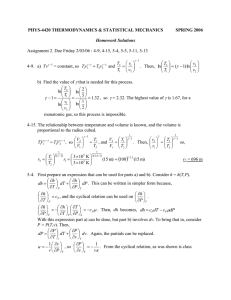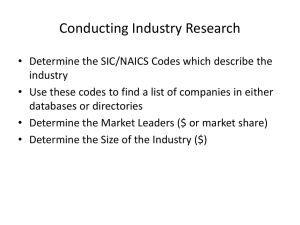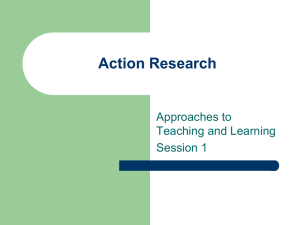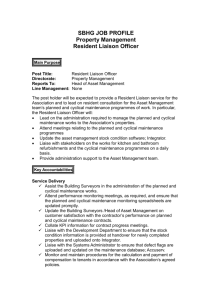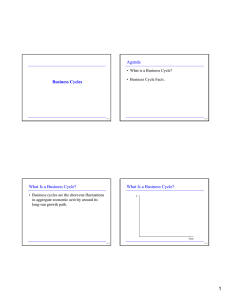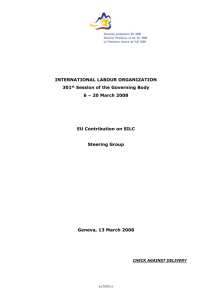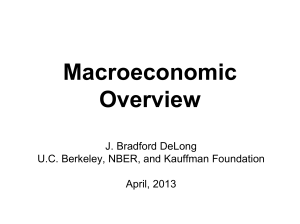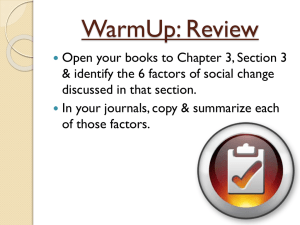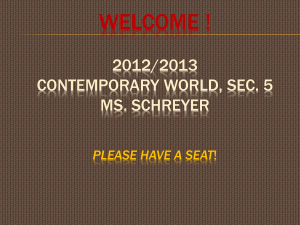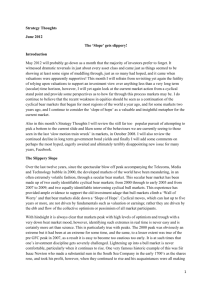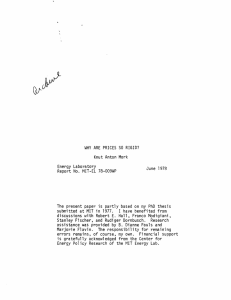Public Relations as a Cyclical Process
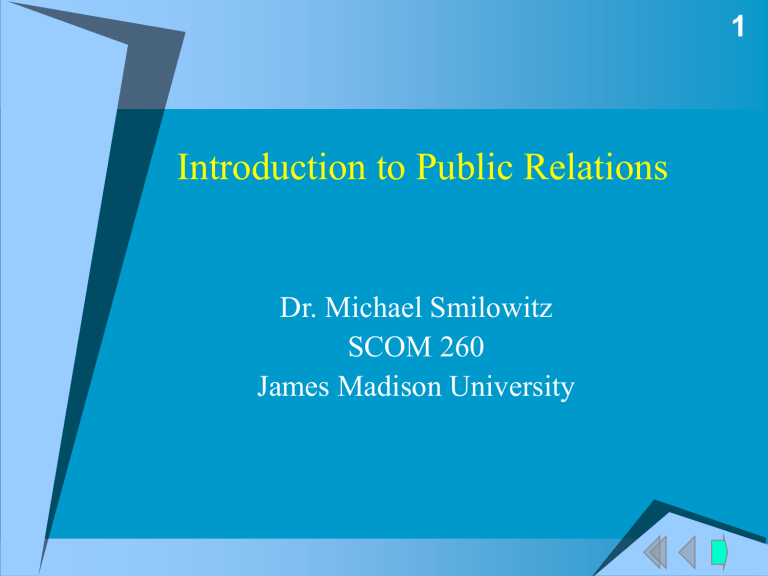
Introduction to Public Relations
Dr. Michael Smilowitz
SCOM 260
James Madison University
1
Public Relations:
A Brief Introduction
What to expect:
1. Be able to define and identify the practices of public relations.
2. Be able to identify and describe the “3R’s” of public relations.
3. Be able to describe the PR process.
2
Defining Public Relations
3
Let’s start by seeing what is involved with the:
Defining Public Relations
Press agentry:
Creating publicity through attention getting devices or publicity gimmickry.
4
Defining Public Relations
Publicity:
Planned program to obtain favorable media coverage of topics important to the client
.
5
Defining Public Relations
Promotion:
A marketing function that is used to build the image of a product or service through paid advertising, public relations, or personal selling.
6
7
Defining Public Relations
Propaganda:
Persuasive political communication that is always done by the “other guy” -- also known as “spinning.”
Defining Public Relations
Here’s the one to keep!
Communication activities that responsibly manage the interactions between the needs of individuals [the client(s)] and those of the relevant public [s].
8
Defining Public Relations
To understand the definition of Public Relations requires us to know the 3 R’s!
9
The 3R’s of PR
Responsible Communication
Professional Responsibility: to the client; to the profession.
Social Responsibility.
Ethical Responsibility.
10
The 3R’s of PR
Relational Communication
PR professionals actively facilitate message exchanges between their clients and the publics with whom the clients share mutual relationships.
Increasingly sophisticated, educated, and demanding publics expect to be taken seriously.
11
The 3R’s of PR
Researched Communication
PR professionals anticipate, analyze, and interpret public opinion and behaviors which impact their clients.
PR professionals are paid to chose purposeful actions and to plan deliberate programs.
12
The 3R’s of PR
Responsible Communication
13
Relational Communication
Researched Communication
Defining Public Relations
14
The “P” of PR represents
Process!
R
15
Public Relations as a Cyclical Process
Research and
Analysis
Policy
Formation
Program assessment and adjustment
Programming
Communication
Feedback
16
Public Relations as a Cyclical Process
Research and
Analysis
Determine the nature of the problem: examine media content; review previous research on similar problems; gather and analyze new data; study relevant government regulations.
17
Public Relations as a Cyclical Process
Policy
Formation
Assess the research inputs; establish strategic goals and objectives.
18
Public Relations as a Cyclical Process
Programming
Make specific decisions regarding tactical strategies, action steps, agendas, tables, tactics, responsible personnel.
19
Public Relations as a Cyclical Process
Communication
Execute the strategies through news releases, publications, speeches, special events, community relations programs, personal contacts.
20
Public Relations as a Cyclical Process
Feedback
Measurement of the audience response or communication effects, often with the same or similar tools that were used in the initial research and analysis stage.
21
Public Relations as a Cyclical Process
Program assessment and adjustment
Feedback is evaluated to determine changes in any or all of the steps of the process.
22
Public Relations as a Cyclical Process
Research and
Analysis
Policy
Formation
Program assessment and adjustment
Programming
Communication
Feedback
A popular and “racy” PR process model
23
R esearch What is the problem or situation?
A ction What is going to be done about it?
C ommuniWhat will the public be told? cation
E valuation What was the effect of the communication?
24
A popular and “racy” PR process model
R. A. C. E.
